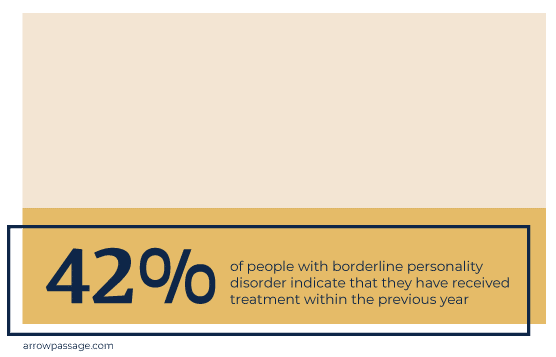What is Dialectical Behavior Therapy?
Why and How DBT works in addiction treatment.

What is Dialectical Behavior Therapy?
Why and How DBT works in addiction treatment.
What is Dialectical Behavior Therapy?
Dialectical behavior therapy is an effective treatment for individuals with borderline personality disorder, and it is particularly successful when used with women who have made suicidal gestures, according to a 2006 report in Psychiatry.
Numerous rigorous studies have found that dialectical behavior therapy improves symptoms of borderline personality disorder.1 It is sometimes used to treat other mental health conditions, such as substance use disorders, and there are numerous benefits associated with this form of therapy.
More About Therapies
Brief History of Dialectical Behavior Therapy
Marsha Linehan designed dialectical behavior therapy, first aiming to develop a treatment that works for women showing suicidal behaviors. She researched various treatments and developed a form of cognitive behavioral therapy that was not effective and lead to treatment dropout.
Linehan then conducted additional research and incorporated acceptance of the client into her treatment program, and dialectical behavior therapy was created as a program that contained a balance of accepting the client and helping the client to change.
Learn More About Recovery
Dialectical Behavior Therapy and Borderline Personality Disorder
Dialectical behavior therapy is a type of cognitive behavioral treatment used with patients with borderline personality disorder.
Borderline Personality Disorder (BPD)
This mental health condition is characterized by unstable emotions and behaviors and difficulties with self-image. Intense mood swings are common with this condition. People with borderline personality disorder tend to have conflicted relationships, because they fear abandonment and may either make attempts to avoid abandonment or cease communication with someone when they feel abandonment is a possibility. They also tend to swing between extremes of loving someone and viewing that same person as an enemy.
People diagnosed with borderline personality disorder also have difficulty controlling anger and may have intense angry outbursts. In addition, they find it challenging to trust others, and they may engage in self-harming behaviors or have thoughts of suicide.2
BPD Risk Factors
Per the research, multiple factors can contribute to the development of borderline personality disorder. For example, people with this condition may show differences in structure and function in the brain. There is also some evidence that child abuse, neglect, and trauma can increase the risk of borderline personality disorder. Genetics can also play a factor in borderline personality disorder.3
Who Develops BPD?
According to a 2018 report in Brain Sciences, about 5.9 percent of people will experience borderline personality disorder at any point during their lives, and 1.6 percent of the population has borderline personality disorder at any given time.
In treatment settings, there are three times more females than males with borderline personality disorder, but in the general population, the occurrence of borderline personality disorder is similar in males and females, suggesting that women with this condition are more likely to seek treatment.3
BPD Prevalence
To understand how common borderline personality disorder is, it is helpful to compare its prevalence to that of the other personality disorders. According to the National Comorbidity Survey Replication, published in 2007, borderline personality disorder has a lifetime prevalence of 1.6 percent, compared to the following rates for other personality disorders:4
- Paranoid Personality Disorder- 2.3 percent
- Schizoid Personality Disorder- 4.9 percent
- Schizotypal Personality Disorder- 3.3 percent
- Antisocial Personality Disorder- 1 percent
- Avoidant Personality Disorder- 5.2 percent
- Dependent Personality Disorder- 0.6 percent
- Obsessive-Compulsive Personality Disorder- 2.4 percent
This survey found that the rates of narcissistic personality disorder and histrionic personality disorder were so low, that they were reported as having a 0 percent prevalence.
BPD Treatment
Treatment is available for borderline personality disorder, but unfortunately, a majority of people with this condition go without treatment. According to data presented by the National Institute of Mental Health, just 42 percent of people with borderline personality disorder indicate that they have received treatment within the previous year.8
Dual Diagnosis
Another treatment consideration for borderline personality disorder is the fact that it often co-occurs with other mental health conditions. The research shows the following comorbidity rates between borderline personality disorder and other mental health diagnoses:8
- Anxiety disorders- 60.5 percent
- Mood disorders- 34.3 percent
- Impulse control disorders- 49 percent
- Substance use disorders- 38.2 percent
- Any mental health condition- 84.5 percent
Because borderline personality disorder frequently co-occurs with other mental health conditions, it is important that treatment is comprehensive and addresses all of a person’s mental and emotional needs.
Dialectical behavior therapy may be especially helpful for people who have co-occurring conditions, since it has been shown to improve a variety of symptoms, such as anger and depression. It is also worth noting that the research has found dialectical behavior therapy to be especially effective for promoting long-term abstinence among people with addictions, making it a viable treatment option for the 38.2 percent of people who also have a substance use disorder.
(%) of personality disorders in the United States
How Dialectical Behavior Therapy Works
Individuals with borderline personality disorder have an inherent difficulty processing emotions; they demonstrate intense emotional reactions and struggle to return to a neutral state after an emotional outburst. The aim of dialectical behavior therapy is therefore to help clients learn the skills necessary for identifying and regulating emotions. This is achieved through a thorough treatment plan that includes weekly individual counseling, group skills training, and therapist consultation meetings in which the lead clinician meets with other clinicians to discuss challenges, develop solutions, and receive support. While the focus of dialectical behavior therapy is on helping clients to regulate emotions, in cases where a client is suicidal, this challenge takes precedence, as it can be life-threatening.1

5 Aims of DBT
There are five aims of dialectical behavioral therapy:1
- Enhancing a client’s ability to manage emotions, cope with distress, focus on the present, and engage in healthy interpersonal relationships
- Generalizing the skills developed in therapy so the client can apply them in everyday life
- Increasing motivation for change and reducing problematic behaviors
- Enhancing clinician motivation through training, support, and skill building
- Modifying environments so that clients can be successful
Throughout the course of treatment, the therapist helps the client to meet these aims of therapy. For instance, a therapist may help a client reduce problematic behaviors by having the client keep a diary and reviewing with the client what has triggered an undesirable behavior or emotion.

Mindfulness Interventions
Therapists may also practice mindfulness interventions to help clients with borderline personality disorder focus on the present. As the client and clinician work collaboratively to achieve treatment goals, the clinician must always demonstrate a balance of accepting the client as he or she is and motivating the client to make positive changes.1

Group Sessions
In group sessions, clients can learn about their condition, practice skill development, and share experiences with other group members. Groups are led by trained clinicians who may assign homework to help with skill-building.
How Effective is Dialectical Behavior Therapy?
Dialectical behavior therapy was designed specifically to treat patients with borderline personality disorder, and researchers have taken an interest in this form of therapy, conducting numerous studies to determine its effectiveness.
In 2012, a research team led by a psychologist affiliated with the Department of Psychiatry and Psychotherapy at the University Medical Center Mainz in Germany reviewed the results of 28 studies that evaluated the effectiveness of various treatments for borderline personality disorder.
The results of their review revealed that dialectical behavior therapy is significantly more effective than usual treatments for improving anger, suicidal/self-harming behaviors, and mental health.5
Benefits of Dialectical Behavior Therapy
As the research has demonstrated, dialectical behavior therapy is effective for treating borderline personality disorder and can offer numerous benefits. People with borderline personality disorder may enjoy the following benefits with dialectical behavior therapy:
Improved Relationships
Reduced Anger
Relief from Suicidal Thoughts
Reduction in Self-Harming
Increased Distress Tolerance
Healthier Coping Mechanisms
Better Emotional Regulation Skills
Misconceptions about Dialectical Behavior Therapy
Despite the benefits and effectiveness of dialectical behavior therapy, there are some negative views and misconceptions associated with this form of psychotherapy. Some common misconceptions about dialectical behavior therapy are as follows:
Treatment is too time-consuming
While dialectical behavior therapy does involve both individual and group therapy sessions, the time commitment it requires is much smaller than what would be expected for intensive outpatient or partial hospitalization programs. It is possible to meet obligations at work, home, and school and still complete dialectical behavior therapy. Typically, a person would have an hour-long individual therapy session and a two-hour group session each week.
Dialectical behavior therapy is only for women
As previously noted, borderline personality disorder is more common among women in treatment when compared to men, but the prevalence of the condition in the general population is believed to be equal in men and women. Dialectical behavior therapy can be effective for men, according to the research.
A 2018 study in the Journal of Personality Disorders found that among men with borderline personality disorder and antisocial personality disorder, dialectical behavior therapy was effective for reducing undesirable behaviors, such as self-harming, aggression, and criminal activity. Men who completed dialectical behavior therapy also saw an improvement in symptoms of borderline personality disorder and a reduction in depression.6
DBT is Only for borderline personality disorder
This form of therapy was designed to treat borderline personality disorder, but it may be effective for treating other mental health conditions. According to the 2006 report in Psychiatry, dialectical behavior therapy has shown effectiveness for treating women who have borderline personality disorder and a substance use disorder, as it can promote long-term abstinence from drugs. Dialectical behavior therapy could therefore be useful for treating addictions.
The report also indicates that dialectical behavior therapy can improve body image and reduce anger, binging, and purging in patients with eating disorders and potentially improve depression symptoms among older adults.1
DBT is the same as CBT
Although dialectical behavior therapy has roots in cognitive behavioral therapy, it is a unique intervention. It incorporates a focus on emotions and mindfulness techniques, and it also emphasizes acceptance instead of just behavioral change.1
Borderline personality disorder is untreatable
While this may be a common misconception, the research suggests otherwise, as people with borderline personality disorder show improvements in symptoms and reductions in anger and self-harming with dialectical behavior therapy. With treatment, people can recovery and enjoy improved quality of life.
Where to Find Treatment
Trained psychologists, psychiatrists, counselors, and clinical social workers can provide dialectical behavior therapy services. These clinicians may work for community mental health clinics, hospitals, universities, non-profits, or private practices. To locate a provider in your area, use the search tool provided by the Substance Abuse and Mental Health Services Administration.7
After contacting a provider, you can expect to attend an initial appointment during which a clinician will complete the intake process. It is important to provide an honest, detailed history and description of your mental health symptoms so that your treatment can be as effective as possible. It may be helpful to inquire if the agency where you are receiving services has clinicians on staff who are trained and experienced in dialectical behavior therapy.
Dialectical behavior therapy is a proven, effective treatment for borderline personality disorder, and it can also be useful for treating co-occurring conditions. With this form of treatment, people can enjoy symptom reduction and an improved quality of life.
Some people with borderline personality disorder may also benefit from taking medications, such as mood stabilizers, to help with extreme mood swings. Others may benefit from taking anti-anxiety medications or anti-depressants to treat co-occurring conditions. There are also family support groups available to help loved ones learn about borderline personality disorder and develop an understanding of how to best support their loved one in treatment.

Resources
- https://www.ncbi.nlm.nih.gov/pmc/articles/PMC2963469/
- https://www.nimh.nih.gov/health/topics/borderline-personality-disorder/index.shtml
- https://www.ncbi.nlm.nih.gov/pmc/articles/PMC6266914/
- https://www.ncbi.nlm.nih.gov/pmc/articles/PMC3105841/
- https://www.cochranelibrary.com/cdsr/doi/10.1002/14651858.CD005652.pub2/full?highlightAbstract=dialectical%7Cdialect%7Ctherapy%7Ctherapi%7Cwithdrawn%7Cbehaviour%7Cbehavior
- https://guilfordjournals.com/doi/abs/10.1521/pedi_2018_32_379
- https://findtreatment.samhsa.gov/
- https://www.nimh.nih.gov/health/statistics/personality-disorders.shtml














